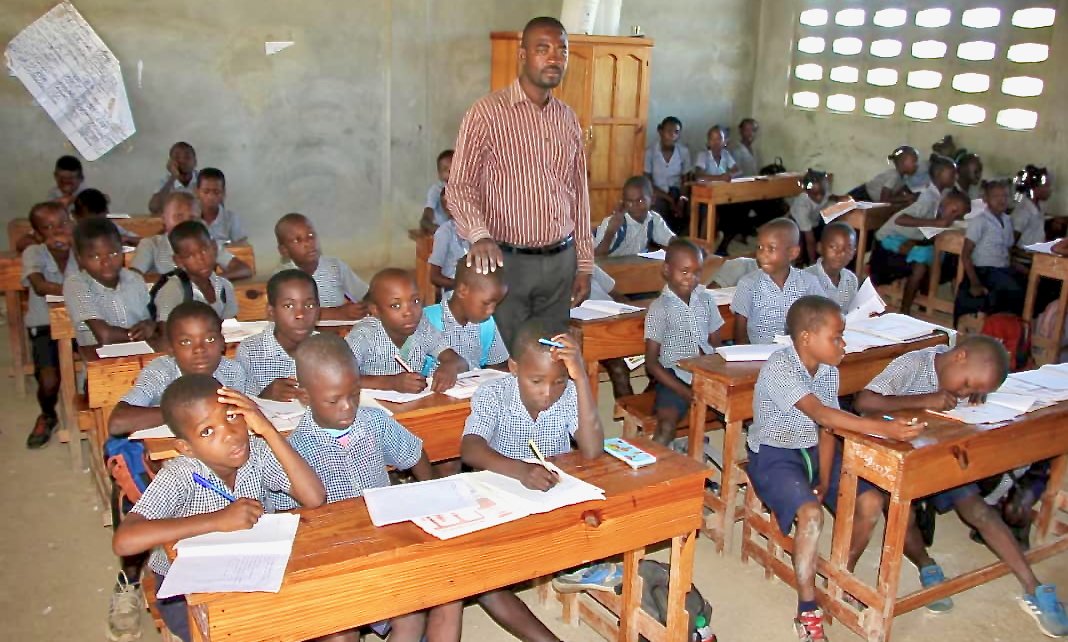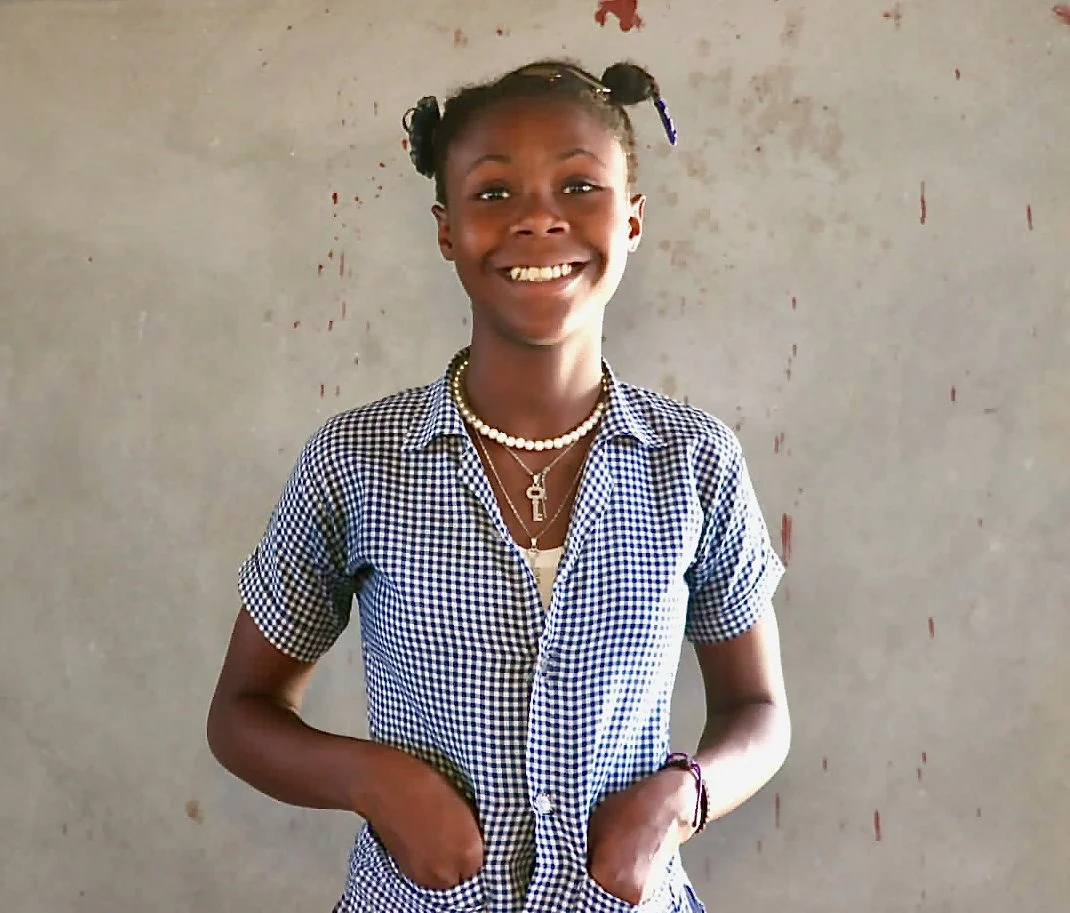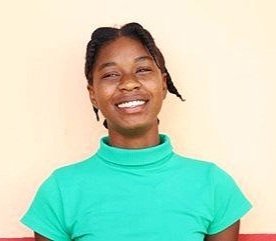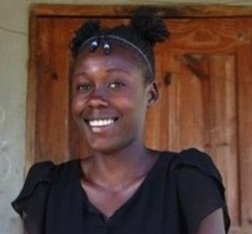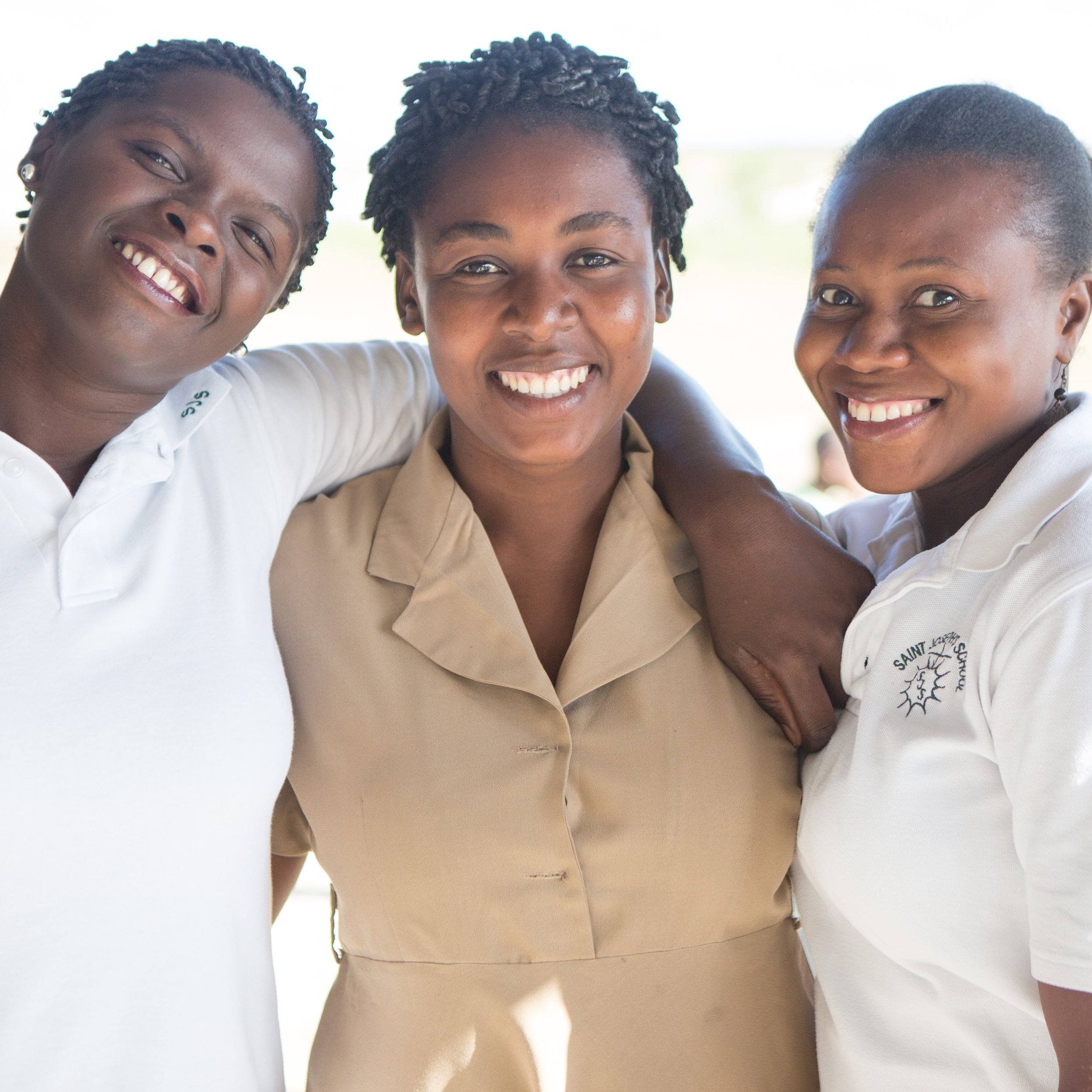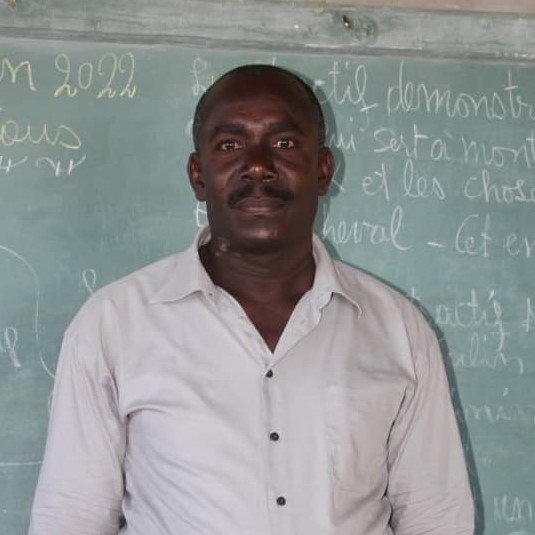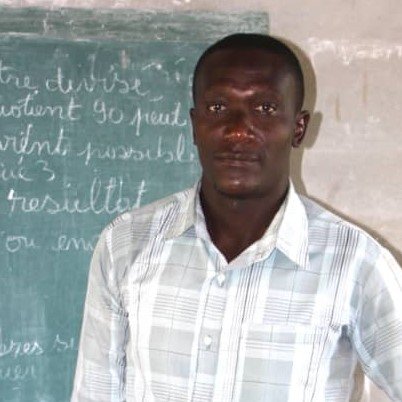Teachers are the backbone of the EcoVillage school. They serve not only as educators but also as mentors and role models, shaping the future of the children they teach. All are experienced in the classroom, with most having several years teaching in the EcoVillage School. From year-to-year turnover is almost nonexistent. This is crucial since educational materials are in short supply while classrooms are bursting at the seams with the arrival of refugee children whose families have escaped the violence of the big cities. Chalk and blackboard are their chief teaching aids. These are challenging times to be a teacher at the school.
You would expect all of this to weigh on student performance. Not so. The students have continued to excel in their studies. Over 82% of last year’s students progressed to the next grade level. Results of the national gateway exams were outstanding, with a high percentage of our 9th graders passing, allowing them to advance to high school. This success is a direct result of our dedicated teachers, who are committed to maintaining high educational standards despite limited resources. These accomplishments have helped the EcoVillage School maintain its national accreditation, which is particularly significant in a country where most schools have been forced to close due to lack of funding and support.
Now for some irony. The Haitian government is virtually nonexistent -- no president, no legislature -- but the Ministry of Education continues its role by adding requirements to the curriculum. It has mandated the addition of three new subjects: technology, the arts and physical fitness. All good things. But the Ministry, which is required by the Haitian Constitution to pay educators like the ones at the EcoVillage School, offers not one cent. Mandates without financial support for strapped schools to meet them simply adds more stresses. Oh, well. At least it’s worth knowing that employees at the Ministry probably aren’t being paid, either.
In addition to these external factors adding pressure to teachers, inflation and the devaluation of the Haitian currency has eaten into the spending power of teachers’ pay. Plus, transportation is more difficult and fraught with the sketchy availability of gas and the spread of gang violence. Most EcoVillage teachers live at least 5 miles away. Because of these concerns, the Atlanta Partnership has committed to increasing the salaries of the teachers. It’s only fair. Teacher salaries have averaged $2000-2200…per year.
Since teacher salaries are the lion’s share of the school budget, even a modest increase puts additional pressure on our fundraising. This makes your support ever more critical. Your contributions are shaping a brighter future for the children of Haiti. Thank you.
